Zooarchaeology
Welcome to the zooarchaeology research group of the Groningen Institute of Archaeology (GIA) led by Dr Canan Çakırlar. Our main offices are in the Poststraat 6, 9712 ER Groningen.
Our teaching activities include:
-
teaching BA, MA, and Research Master's courses
-
tutoring individualized research projects in zooarchaeology
-
Inter-university and international training through ARCHON and Erasmus agreements.
To discuss PhD projects and funding opportunities contact Dr Canan Çakırlar and check the UG funding page.
Our research facilities include:
-
4500+ specimen zooarchaeological reference collection
-
maceration laboratory
To visit our collections, please make an appointment with the teaching and research assistant in zooarchaeology Thom Brongers.
To stay updated about our research and teaching activities, follow us on Instagram!

Latest Research
-
Winter et al., 2022. Catch of the day: Abundance and size data of groupers (Epinephelidae) and combers (Serranidae) from Middle to Late Holocene Levantine archaeological contexts.
-
Brusgaard et al., 2022. No compelling evidence for early small-scale animal husbandry in Atlantic NW Europe.
Research Cooperations:
Research Projects (selected)
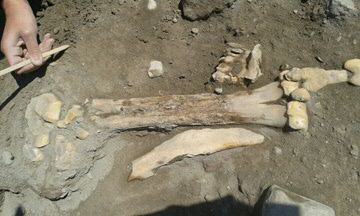
Camels and Cultural Blending in the Ancient Near East. This is about the origins of hybrid camels, funded by the Wenner-Gren Foundation.
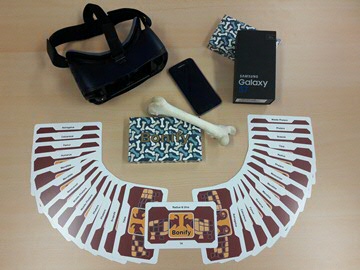
Bonify is a pilot project to ascertain if 3D scanning can provide digital reference collection that can be used in the field, instead or next to a physical collection, either in a webviewer or via a VR headset.
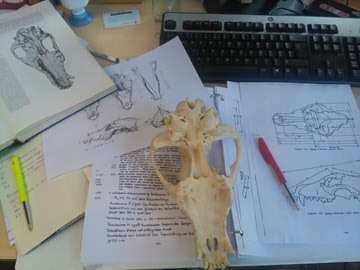
This project funded by a Kleine Data Projecten grant from DANS made a large and valuable dataset of canine cranial measurements digitally and open access available.
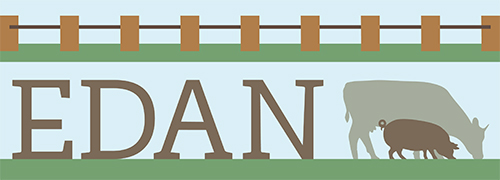
The Emergence of Domesticated Animals in the Netherlands (EDAN) is a 3-year project funded by the Dutch Research Council (NWO) and based at the University of Groningen, with partners from Wageningen University and Trinity college Dublin.
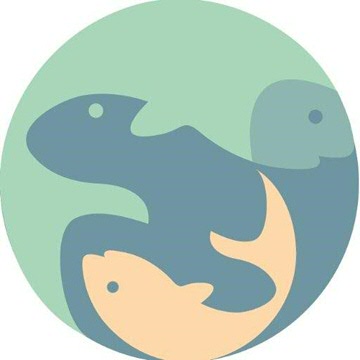
SeaChanges is an international doctoral training network spanning archaeology and marine biology, which supports 15 fully-funded PhD projects across seven institutions in 6 countries. The network takes a long-term perspective on human exploitation of marine vertebrates, with projects covering species from herring to sperm whale, timescales from decades to millennia, and all of Europe's seas and beyond. SeaChanges provides state-of-the-art training to forge a new generation of interdisciplinary researchers able to operate at the interface of archaeology and marine biology.
SNMAP subsidy A
Stable isotope (515N and 513C) analysis of human, animal and seed remains from Troy and Kumtepe to investigate the ‘Dark Age' of Anatolian prehistory and first urban centers of the Bronze Age (5500-2600 BCE) lead by Shyama Vermeersch and Canan Çakırlar.
Team
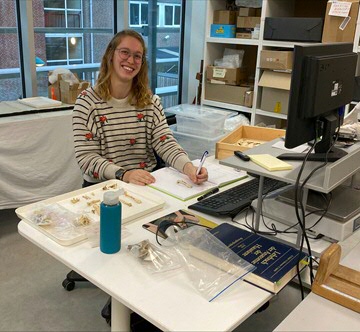
Audrey Crabbé - PhD-student: Telling abnormalities: A multi-disciplinary study on cattle husbandry practices and the keeping and treatment of wild animals in Bronze and Iron Age Anatolia.
Audrey Crabbé has a BA and MA from Ghent University, Belgium, and a ReMA from the University of Leiden. Her PhD is funded by a doctoral scholarship of the University of Groningen. Audrey’s project aims to investigate diachronic and inter-site differences in cattle husbandry practices and the keeping and treatment of wild animals in Bronze and Iron Age Anatolia. She will conduct macroscopic analyses of pathological bones, stable isotope analyses, and look at textual and iconographic sources from various sites in the Hittite heartland and periphery.
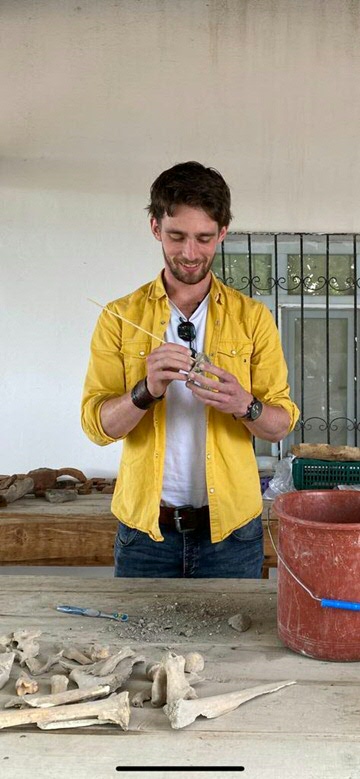
Thom Brongers - Research and Teaching Assistant
Thom Brongers completed his BA and MA in archaeology at University of Groningen. During his MA thesis he investigated human-animal interactions during a rapid climate changing event (8.2 ka) in Neolithic Istanbul, using carbon and nitrogen stable isotopes. He currently works as research- and teaching assistant in the zooarchaeology working group.
Pınar Özükurt - PhD-student: Bioarchaeological Approach to Tepecik-Çiftlik Zooarchaeological Remains
Pınar Özükurt has a BA and MA from Istanbul University, Department of Prehistory. Her doctoral project which started at Istanbul University is currently continuing at the University of Groningen and is funded by the American Research Institute Turkey. The project investigates how climate change affected agriculture and animal husbandry in Central Anatolia during the Neolithic period and what differences it caused in human communities' access to food. Pınar uses Trace Element Analysis (soil), Organic Residue (Lipid) Analysis (pottery), and Stable Isotope Analysis (animal bone and teeth) to investigate this topic. Her research interests are bioarchaeology and archaeochemistry.
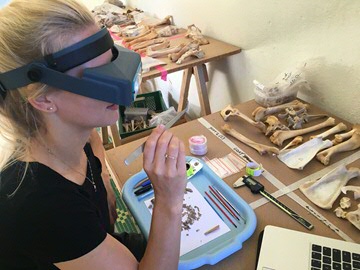
Francesca Slim - PhD-student: Pigs, people and politics in the Late Bronze Age-Early Iron Age western Anatolia and Aegean
Francesca Slim has a BA and MA from the University of Groningen. Her PhD is funded by the Dutch Research Council. She is particularly curious about the persistence of the formalized use and meaning of pigs in the Late Bronze Age after socio-political control falters, about the relationship between pigs and mobility/new settlers, and how environmental baselines influence pig husbandry systems. Her work highlights the importance of cultural, social and environmental determinants in studying human-pig relationships. She conducts fieldwork at Kaymakçı, Gordion, and Clazomenae. She has published her research in Anatolia and the Aegean. Follow her on twitter!
Thilanka Siriwardana – PhD-student: Maritime economies, pearls and shells: Coastal archaeological approach to the human occupations in the North-western and Northern coasts of Sri Lan ka
Thilanka Siriwardana is from Sri Lanka, attached to the Department of Archaeology and Heritage Management, the Rajarata University of Sri Lanka as a senior lecturer. He investigates the environmental underpinnings of human behaviours associated with mollusc-based resources in the coastal zone from Puttalam to Jaffna (west) and adjacent islands in Sri Lanka. He is funded by the World Bank’s AHEAD program.
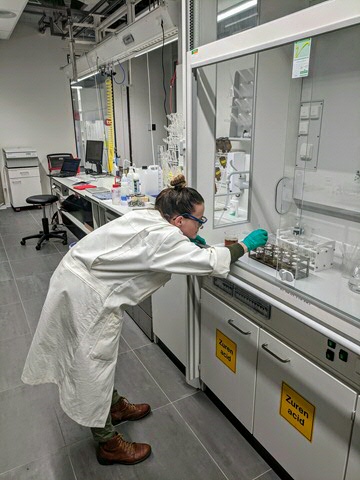
Merita Dreshaj - PhD student: High-Resolution Radiocarbon Chronology for Early Animal Husbandry in the Netherlands using Bayesian Statistical Modelling
Merita Dreshaj is a PhD candidate at the Groningen Institute of Archaeology and Centre for Isotope Research. Her contribution to the Dutch Research Council funded EDAN project relies on creating a chronological backbone, tackling the difficulties in precision and ambiguity of 14C dates through Bayesian modeling. As a trained archaeologist and archaeological scientist, her research interests span over the application of isotope analysis in archaeological research and bridging the gap between science and humanities. Follow her on twitter!
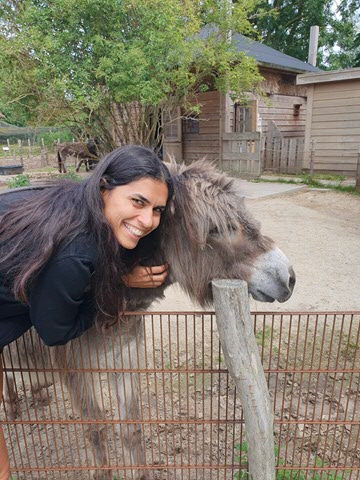
Ayşe Ataş - Research and Teaching Assistant / PhD student
Ayşe graduated from the Middle East University, Department of Biology. She continued her academic career as a Master’s student at the Department of Prehistory at Istanbul University. Currently, she is doing a PhD at the Department of Prehistory at Istanbul University and gets training in zooarchaeological research at the GIA. Her main research focus is understanding the general faunal assemblage of specific sites or locations and human-animal-environment interactions. Her research includes understanding the socio-economic lifestyles of Central Anatolian Neolithic communities, their husbandry practices and also how human-animal interactions affect the environment.
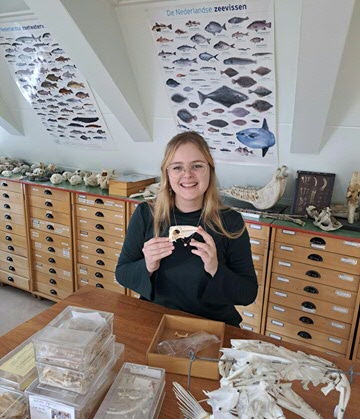
Laurien Folkerts - Research and Teaching Assistant / ReMA student
Laurien Folkerts completed her BA in Archaeology at the University of Groningen. She is currenlty a second-year Research Master Archaeology student at the University of Groningen, specialising in ancient fish exploitation.
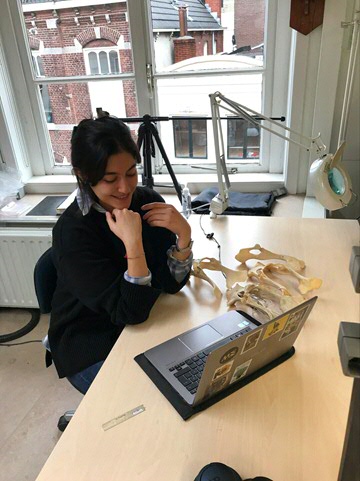
Gamze Tekçe - Erasmus + trainee from the international master’s degree program in Ancient Mediterranean history and archaeology at the University of Pavia, Italy.
Gamze has a BA degree in History from Middle East Technical University, Ankara and she is interested in zooarchaeology and human-animal interactions in the prehistoric and ancient Near East. Her research addresses topics ranging from the origins and spread of domestic livestock to the economic uses of animals in early complex societies and she is currently working on a thesis on the zooarchaeological remains from the Achaemenid to Hellenistic levels excavated at Kınık Höyük (Niğde province, Turkey).
Alumni
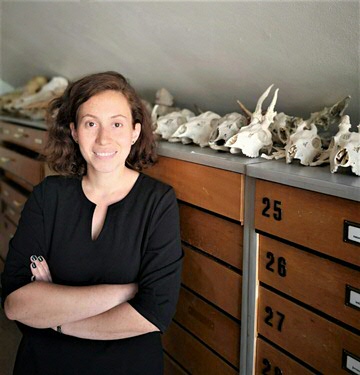
Safoora Kamjan - PhD-student: Evolution of Neolithic cattle husbandry practices
Safoora Kamjan has a MSc from METU in Ankara. She is funded by the UG PhD scholarship program. Safoora utilizes traditional zooarchaeological methods and stable isotope analysis on Neolithic faunal remains from early farming communities in Turkey, Bulgaria, and the Netherlands to investigate Neolithic cattle husbandry practices. She has published on this topic on remains from Bulgaria and the Netherlands. Follow her on twitter!
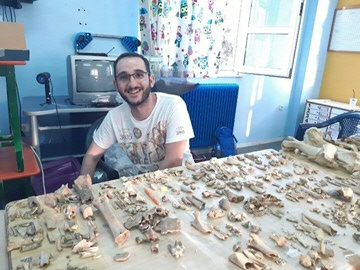
Dimitris Filioglou - PhD-student: Pastoralism in Classical to Early Roman Thessaly, Greece
Dimitris Filioglou has a BA from the University of Athens, Greece and a MA from the University of Sheffield, UK. His PhD is funded by the UG scholarship fund. Dimitris’ project aims to examine the pastoral practices (such as transhumance) that took place in Almiros and Sourpi plains in Thessaly, Greece during the Classical and Hellenistic periods. He investigates several lines of evidence, such as faunal assemblage recording, stable isotopes analysis, ethnoarchaeological research, palaeobotanical evidence as well as literary sources.
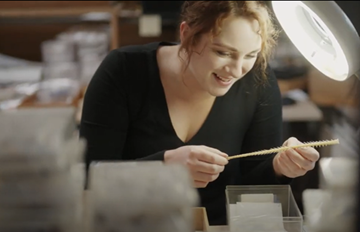
Rachel Winter – PhD student: Foraging ecology and catch size of Mediterranean groupers, c. 2500 BC – AD 500
Rachel Winter’s research focuses on the impact of humans on groupers (Family: Serranidae) in antiquity along the Levantine coast. Rachel is funded by the EU Horizon 2020 program. As apex predators, groupers are key to regulating trophic structures and can provide an indication of ecosystem health. Sheutilizes traditional zooarchaeological methods and biomolecular techniques (stable isotope analysis and collagen peptide fingerprinting (ZooMS)) to study changes in catch size and foraging ecology over time. Archaeological material comes from Kinet Höyük (Turkey), Tell-el Burak (Lebanon), and Tell Fadous-Kfarabida (Lebanon). The aim is to determine the extent that prehistoric marine exploitation impacted grouper populations and in turn, use insights from the past to inform modern marine management. Follow her on twitter!
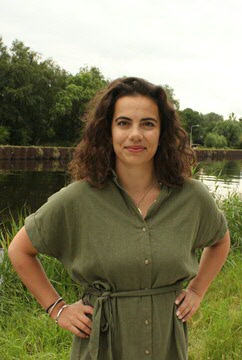
Willemien de Kock - PhD student : Green sea turtle population dynamics and foraging ecology in the ancient Mediterranean
Willemien de Kock’s project uses aDNA and stable isotopes to study ancient sea turtles in the Levant with the goal of understanding more about ancient turtle ecology, population genetics and turtle-human interactions. Willemien is funded by the EU Horizon 2020. Follow her on twitter!
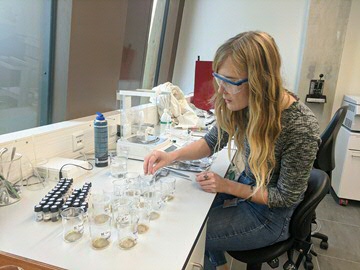
Dr Nathalie Brusgaard – Postdoctoral researcher: Stable Isotopic Analysis of Pre-Domestic and Domestic Pigs and Cattle in Dutch Contexts
Nathalie Brusgaard has a BA, MA and PhD degree from the University of Leiden, the Netherlands. Her research on the Dutch Research Council funded EDAN project focuses on the study of animal diet, mobility, and environment through stable isotope analysis of faunal remains. Nathalie’s research interests lie in the study of human-animal relationships and human-landscape interactions through combining different source materials and methods, including zooarchaeology, stable isotope analysis, iconography, and anthropology. She has published a monograph on her PhD research. Nathalie gets inspiration from fieldwork and stories about unlikely animal friendships. Follow her on twitter!
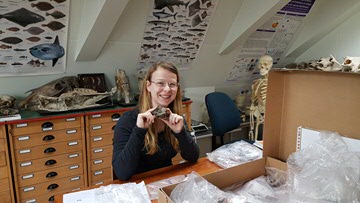
Jolijn Erven - PhD student: Whole-Genome Sequence Analysis of Archaeological Bones of Pig and Cattle of in the Netherlands
Jolijn Erven is a PhD candidate at the Groningen Institute of Archaeology. Trained as a geneticist at Wageningen University, in the Dutch Research Council funded EDAN project she will disentangle the domestication process in the Netherlands using palaeogenomics. Jolijn is interested in (palaeo)genomics, population genetics, zooarchaeology, evolution, animal behaviour and ecology. Jolijn likes to tell trivia about animals, in particular about the quirkiness of animals. Follow her on twitter!
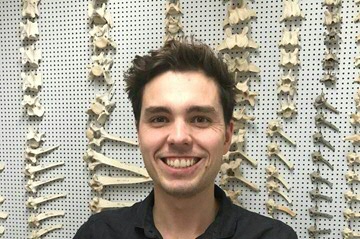
Dr Youri van den Hurk – Research affiliate
Youri van den Hurk is an UG and University of Nottingham graduate. He recently received his PhD from University College London. Youri was a research and teaching assistant at GIA until recently, now he is a MSCA postdoctoral fellow at the Norwegian University of Science and Technology. Youri is highly interested in the zooarchaeology of cetaceans (whales, dolphins and porpoises) and has performed research on cetacean remains from the Netherlands and Belgium and London. Follow him on twitter !
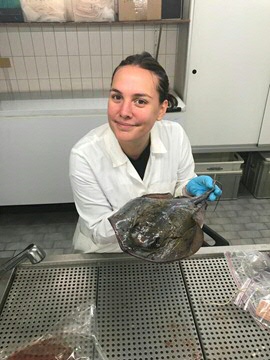
Panagiota Stergiou – Research- and Education Assistant
Panagiota Stergiou has a Master’s Degree in Marine Biology from the University of Groningen. She prepares specimens (primarily fish) and performs zooarchaeological analysis of Mediterranean fish remains. Here, depicted not with fish remains.
| Last modified: | 12 February 2025 10.38 a.m. |
